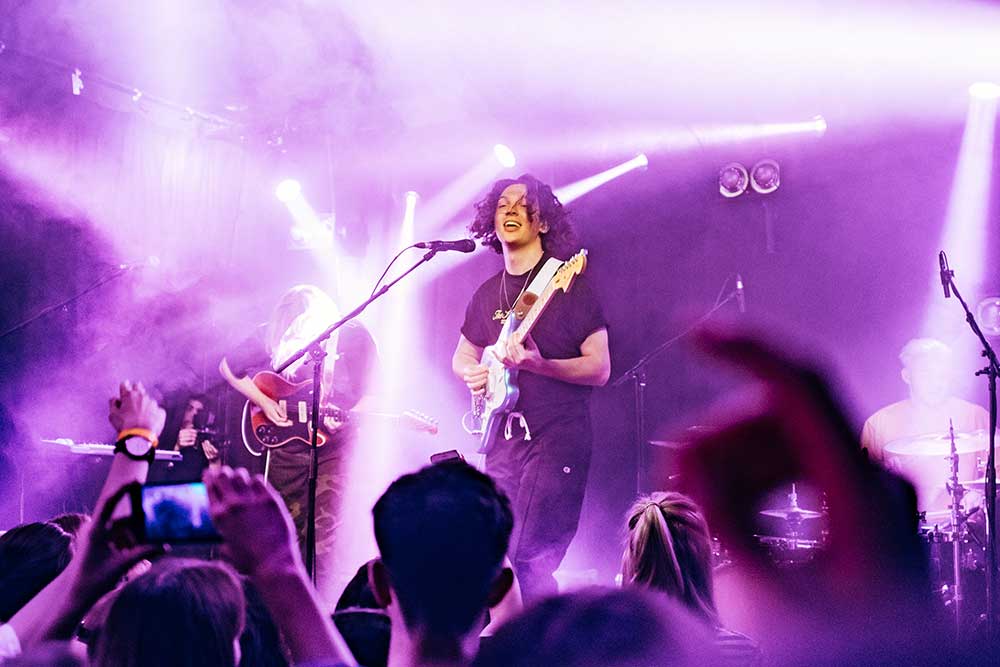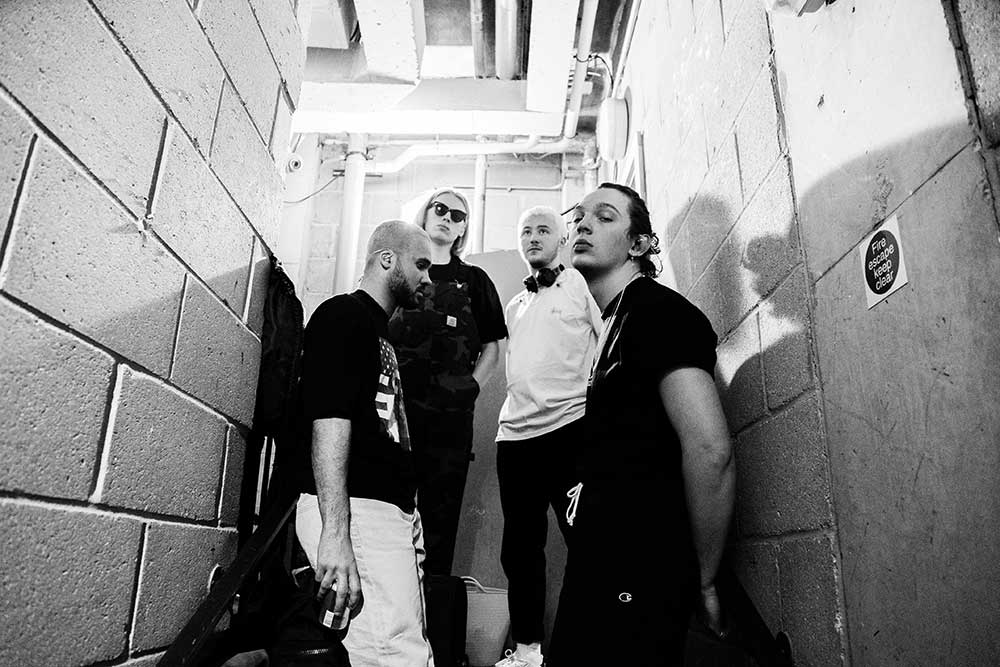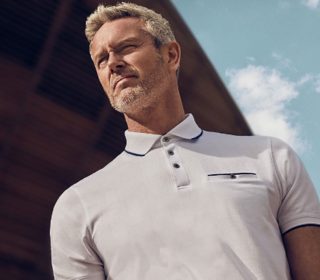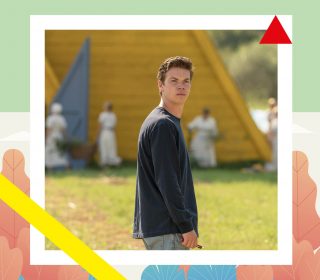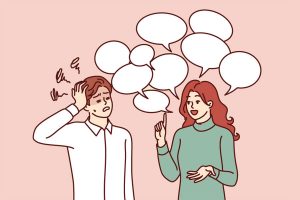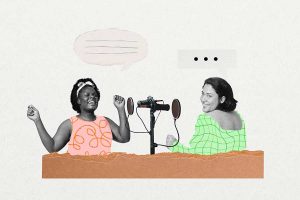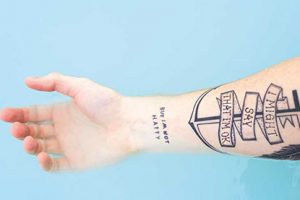Larkins on their “OMG” moment and working their way up through the music industry
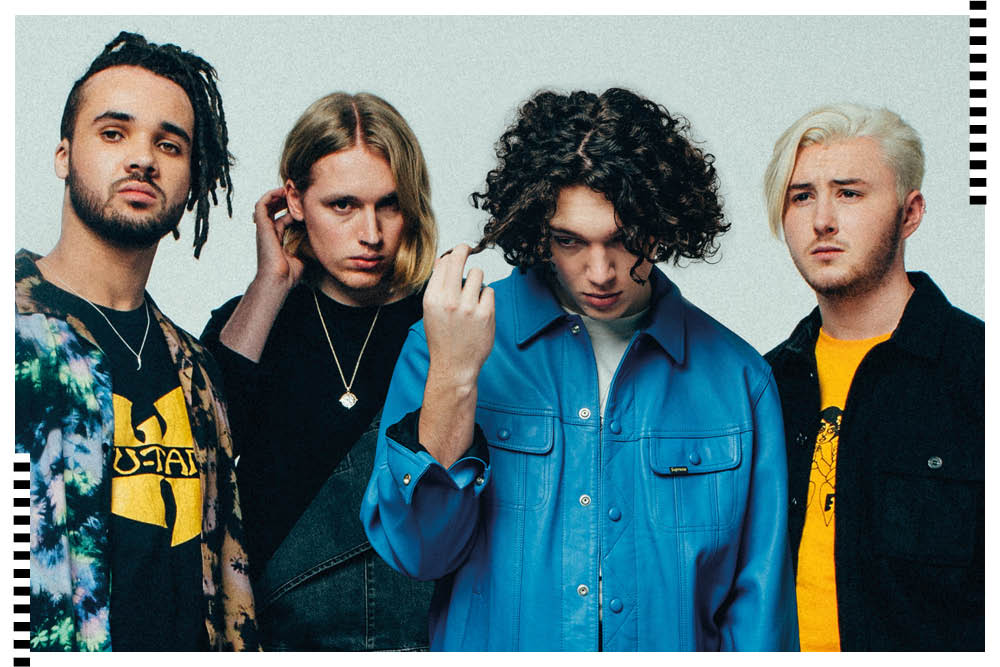
Made up of four 20-something-year-olds, Larkins, a pop-indie band from Manchester, are rising up and up in the music scene.
We spoke to Josh Noble, the lead singer of the band, on how this all came about, and what the future holds for the up and coming band.
WHAT KIND OF MUSIC DID YOU GROW UP ON?
My parents were super into music—my dad was really into Led Zeppelin and Duran Duran. I think one of my biggest regrets in life was growing up and not appreciating those. All I wanted to listen to was like Maroon 5 or James Blunt.
SO HOW DID THE BAND COME TOGETHER FROM THERE?
Me and Dom, the guitarist, met at school. We’d bunk off and go to the music department where he basically taught me how to play guitar. We started playing charity shows, then we took that a bit further, and we’ve been playing together for ages.
After college, we started a band with two more lads, and realised we wanted to take it more seriously. The bass player, Henry, also went to our school but he’s a couple of years younger, he’s 19, so we hadn’t really realised that he was in school with us until our old music teacher told us about him.
WHERE DO YOU THINK YOU TAKE YOUR INFLUENCE FROM FOR YOUR OWN MUSIC?
I think modern-day bands, we take a lot of our influence from bands like Foals. I think we all came together over bands like Fleetwood Mac and Led Zeppelin. Some of the other bands we’re listening to now are Friendly Fires, bands M83 and stuff like that. Obviously, there’s a lot of The [19]75, being from Manchester and them being like the kings of indie pop right now, like it’s that kind of vibe.
WHAT DO YOU THINK THAT LARKINS’ USP IS? WHAT HAVE YOU GOT THAT PEOPLE ARE BEING DRAWN TO?
I think we’ve always been a band that’s been like, “This is the chorus, this is where you jump, and this is kinda where something happens.” I remember we used to sit down and we would have a checklist of what the band was. It’s big choruses, we’ve got a killer bass player, and we always search for a beautiful moment in every song. I think we started to create a community of people, it’s not like a typical gig I don’t think, I think the people that come, come together, and I think it’s pretty cool.
WHAT’S BEEN YOUR BIGGEST OH-MY-GOD MOMENT SO FAR?
I think playing the Albert Hall in Manchester was big because that was for about 2,000 people. I remember the first time we got played by Zane Lowe on Radio 1, which was like “oh, oh my god”.
It’s also gigs like the London shows where people have always gone, ‘You don’t wanna do that,’ and then you do it and it’s like, “oh my god, something’s happening, there’s momentum here”, and if we don’t latch onto it and go for it now, it’s not gonna happen.
WHAT ARE YOU LOOKING FORWARD TO MOST ABOUT PLAYING AT LIVE AT LEEDS? IT’S GONNA BE A BIG DEAL FOR YOU GUYS.
I think we’re headlining the main stage! I think that the best thing about Leeds is that it always goes off. Leeds is never, ever a show we’ve worried about, I went last year just to look around, and it went off, so I think it’s just a place that seems to work.
WHAT ARE YOU GUYS WORKING ON AT THE MOMENT?
A bit of everything, really. We have a rehearsal space in Manchester, so we rehearse about three or four times a week. It’s just getting the album and these next set of tracks to a place where we’re ready to go in and go, “alright, this is gonna be our debut record.”
The plan is to just keep growing. We look at venues like The Apollo in Manchester and Heaven in London as a sign of growth, those are the places we need to get to next. I don’t really feel there’s a roof at the moment, I would like to think that we’re still aiming for those Glastonbury slots and places like that.
HOW DO YOU FIND A BALANCE BETWEEN BEING CREATIVE AND TAKING TIME OUT?
There’s a massive disconnect between touring, and what you do when you’re not touring. If you come offstage when 2,000 people are singing songs that you wrote, and then you’re expected to be that same person for the next 24 hours, you’re not gonna be that person.
You have to be very aware of how you’re feeling on tour, and be very vocal about it. You have to be able to make that switch between the performer and the person. It can be very dominating and you can be expected to push through it and keep going because there’s a bigger goal here. Especially within a band of four people, you’ve definitely got to realise when each other’s not right. I think we gotta take time out as well, you’ve got to realise that being creative is not like a full-time job.



